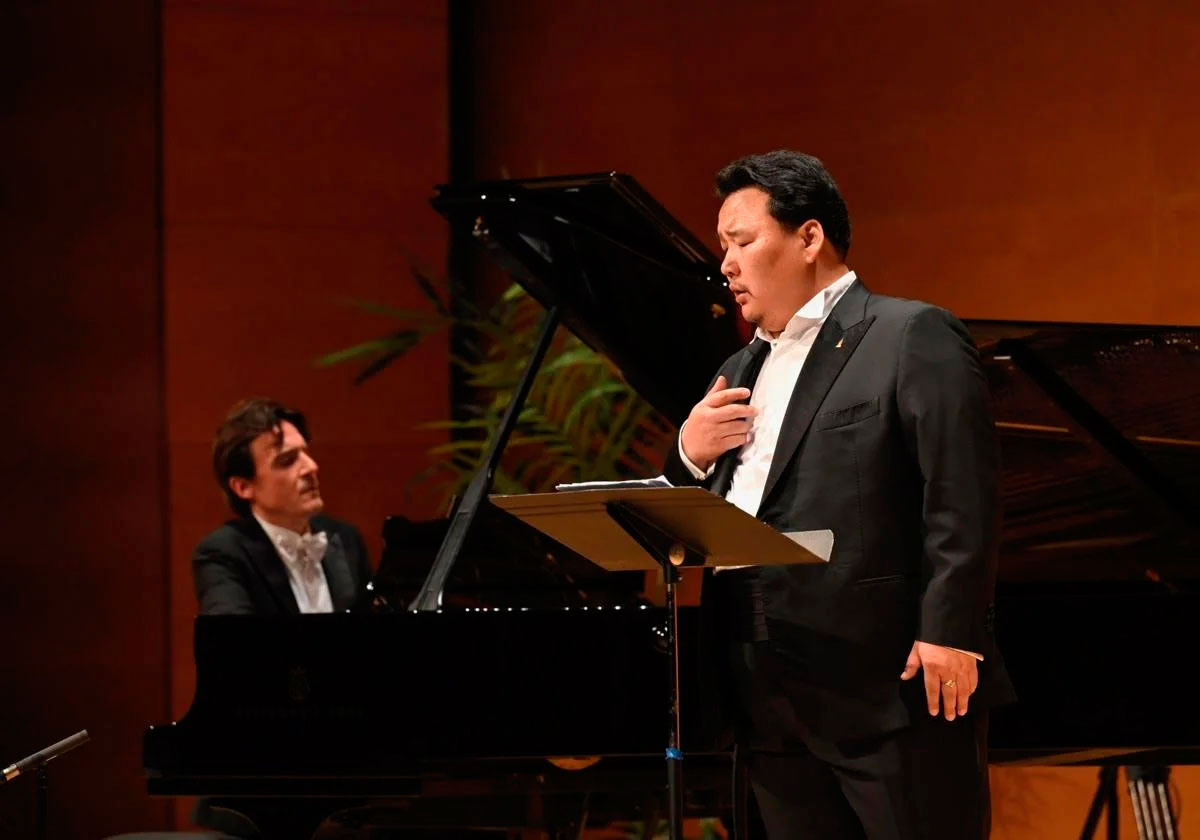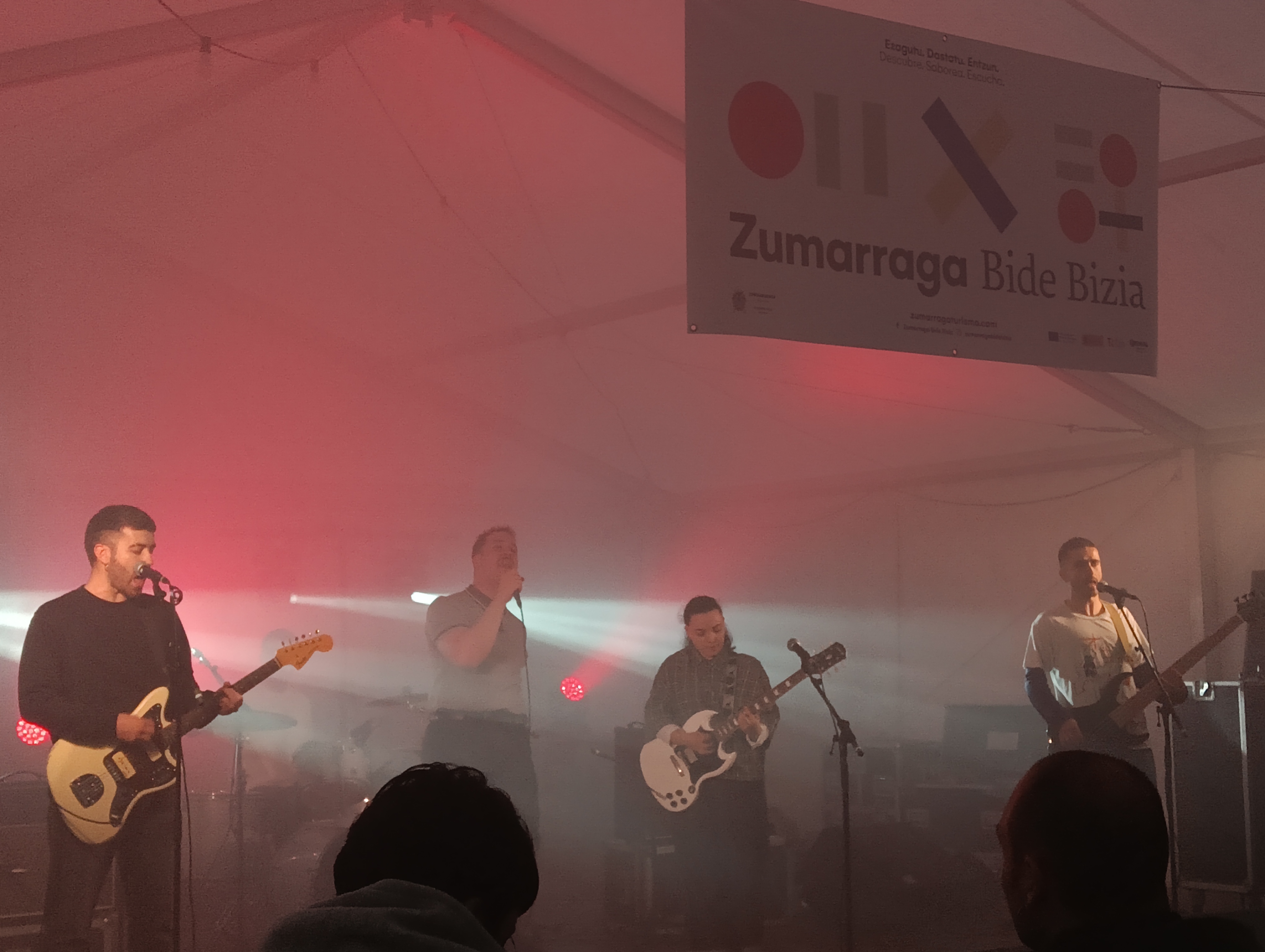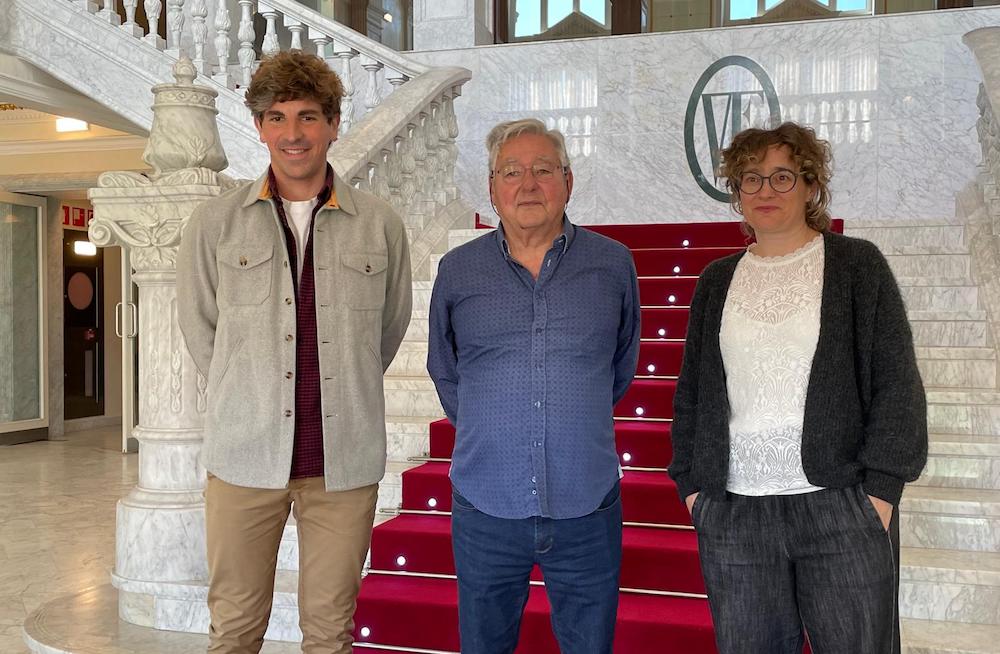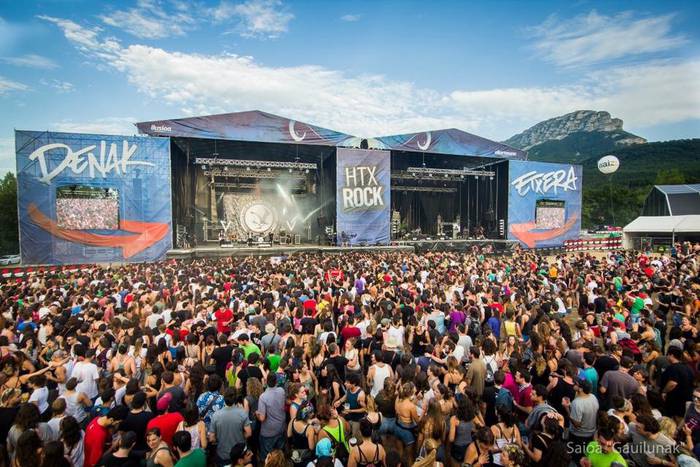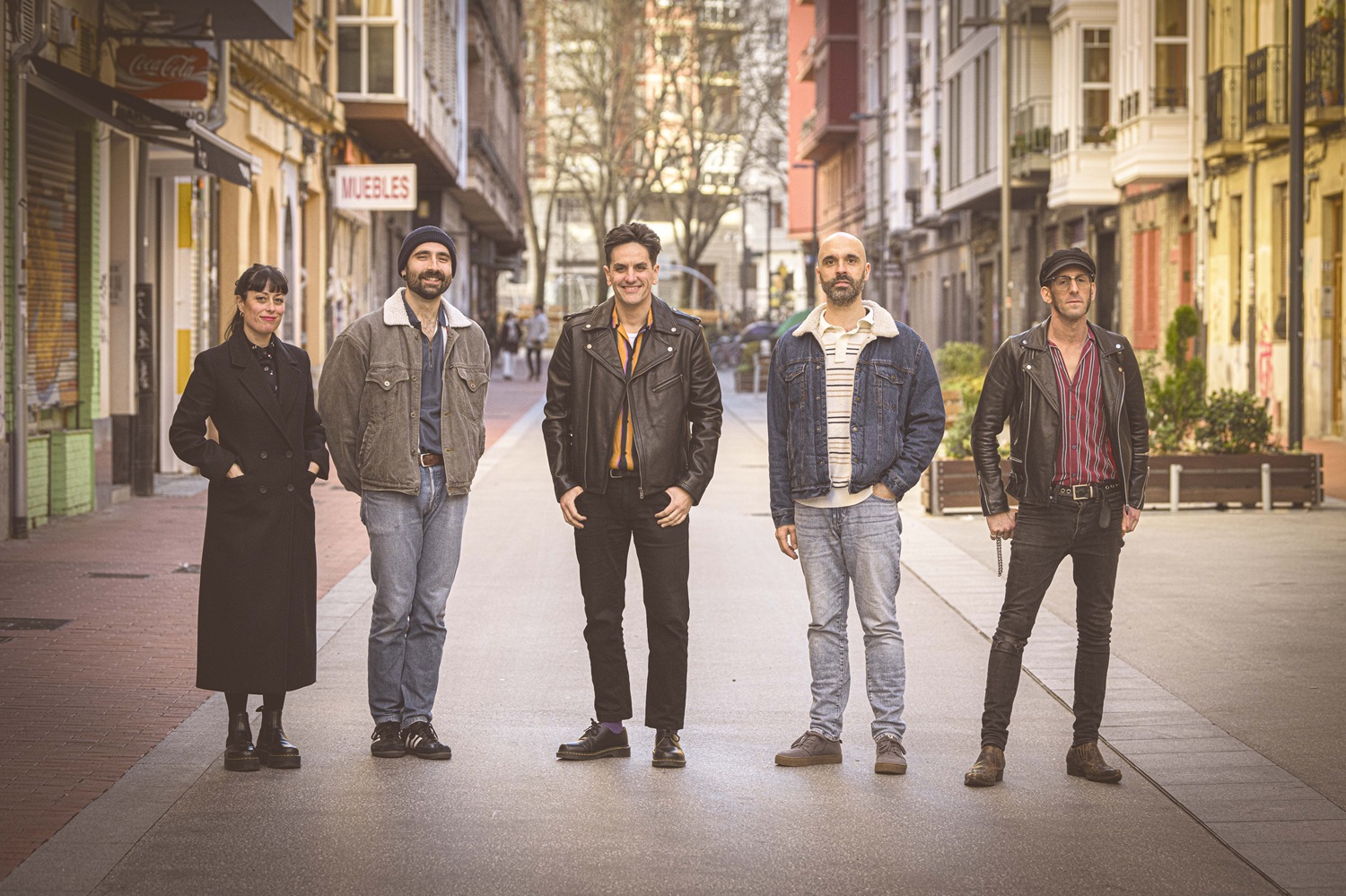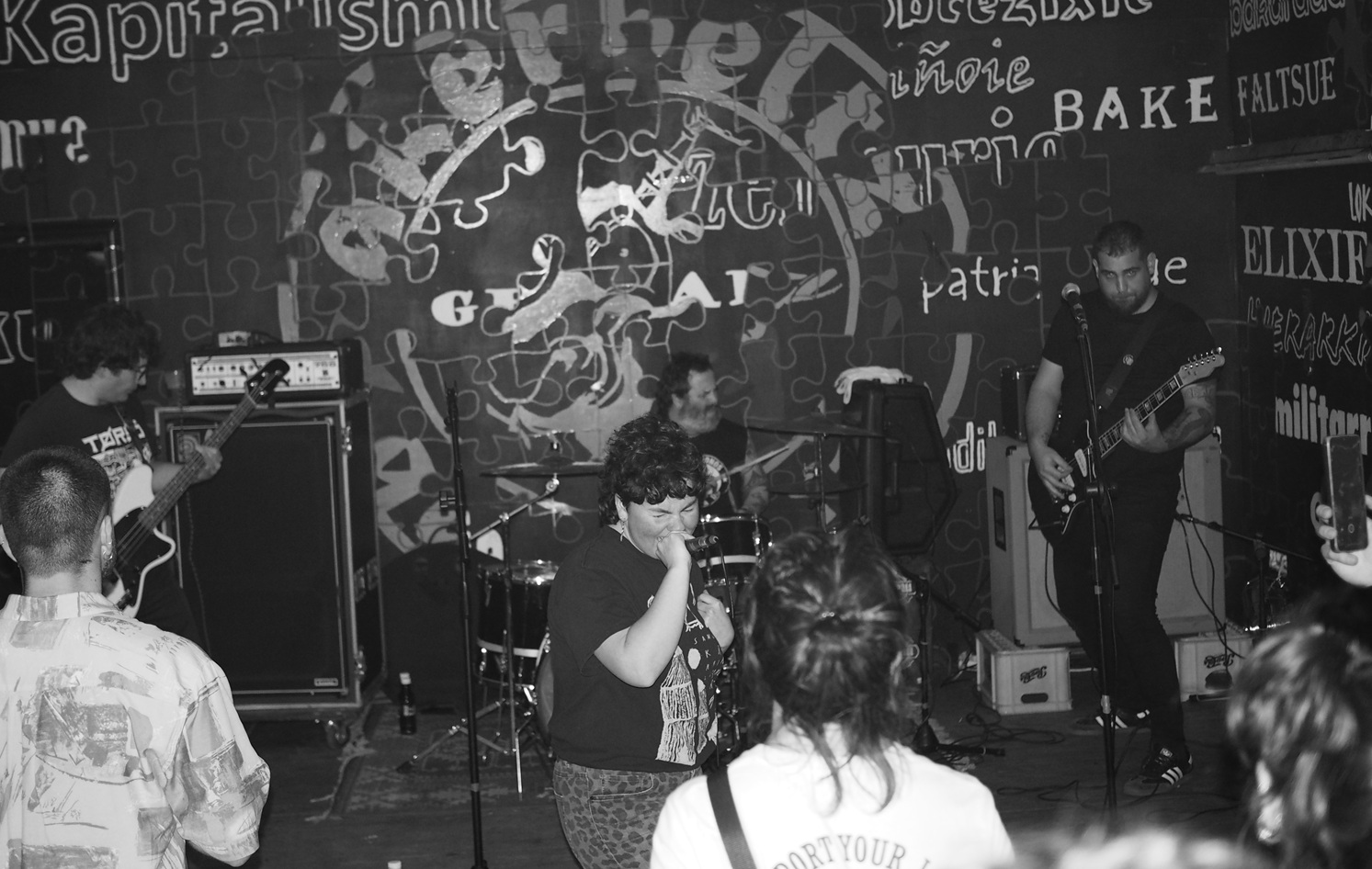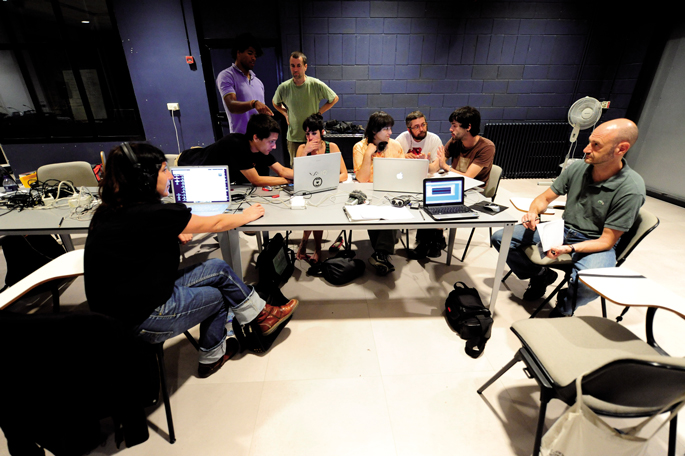
Recording: “It was one of those nice coincidences,” he says after hearing a question about the beginning of the project. “The Syntorama New Music Festival celebrated its 13th edition and I was hired to join. Among other things, I got to work in an Arteleku installation, putting music to some sound sofas of an artist; here was a sample of experimental music. One day the friends Mattin and Enrique Hurtado arrived, we had coffee and we didn't know what to do and said: ‘Let’s unplug, let’s go with three computers to improvise.’ Yes, no -- in the end we started. And little by little people came up, sat down… and Enrique worried: ‘This cannot be done, someone will come, you will see’. Well, someone came to ask us what was going on. It was Santi Eraso.” Stop. Santi Eraso was then director of Arteleku. Play. “I explained to him that we would end right away, quiet, that nothing was happening… ‘But this is fantastic,’ he replied. After a week, I got a call. He told me that with the sound, nothing was done in Arteleku, to see if I would do anything. My counter-proposal is to create a lab. It was in 2002. We started programming in 2003, and by the end of the year we already had space. From there the project became regular”.
A start. More than a mere anecdote, it shows the philosophy of Arteleku, to which Erkizia refers. To be criticized, to have the center had ups and downs, of course, and in recent years the dynamics within the Txomin-Enea building had come down with so many debates – to enter Tabakalera, not to enter, today yes, tomorrow I do not know – with constant changes of direction, with floods that the project fell unfortunate… Look at the bottom of the mud, the climate before it sank, it was “to do”.
Kalostra, who has taken the witness of Arteleku, has doubts that he will recover all that heritage, believes that something “enormously public” has been lost, although he has not blackened the new project: “Each society decides to give some people the right to work things that others could not work. In classical Greece, they were philosophers and in Arantzazu friars. Thanks to them we have a lot of things that we would not otherwise have. Should today's society guarantee these kinds of spaces? That's the question. Was Arteleku such a space? I think so. Will it be a calostra? It can be.”
Generating strange sounds
We delved into the end of history and became interested in the journey. Rewind. Play. “I wouldn’t be able to tell how many artists we’ve worked… for centuries. His membership of Arteleku made Audiolab a benchmark.” Low budget reference: Erkizia said that nobody has ever had a salary in the sound lab and that around 30 acts have been organised each year with a bag of between 5,000 and 15,000 euros. Those numbers that matter? Is the value of such a project measured? We have more questions.
How much does the No sound is innocent workshop that Eddie Prévost brought to Arteleku in 2003 cost? Don't answer in euros, something else matters. “It really was a starting point,” says Erkizia. There were people walking around with experimental music, some totally immersed, some interested, not knowing where to start. There was nothing left to unite them. And the Audiolab workshops played that role.
“You see the old photos and, jo…”, stops for a moment, as if I wanted to remember something; and come back, “now yes, now you see it: at that time you are not aware, there were Mursego, Xabi Strubell, Joseba Irazoki, Iñigo Telletxea, Mikel R. Nieto, Oier Iruretagoiena, Miguel Ángel García, Hector Rey, Jon Mantxi, at first also the people of Oreka TX, Makala, Javi Pez, Iban Urizar…”. He believes that the improvisation workshops have marked an entire generation.
It also reminds with special affection those of Jean-Luc Guionnet and Matthieu Saladino. And the MRB days with a more marked project character: they served to share and discuss ideas, projects and works related to sound. If the participants are asked, they are told of a special climate, they are told of “something that was in a torrent”. They talked about sound, yes, but not disconnected from the world, because one of the issues to study was the role that music and noise can play as instruments of torture.
Research without thesis
It's been a lot of Audiolab and a lot of other things not. For example, it has not been a rigid project. “Now it seems that all projects have to be a thesis,” Erkizia complained. A different model has been the one in the lab. And all right, he also says that that concept was “fashionable”, which was then emptied like a punched wheel, as has happened with many other trends in the art world, but in any case, he believes that the laboratory, without having a concrete project, offers a wide variety of experiments. Also, adding attempts in different directions, the thing ends up acquiring “a kind of character” that has allowed the participants to progress without closing among four walls.
“We didn’t want to create a new ghetto, so we needed openness. Working with phonography, in this sense, has always kept us somewhere else”, explained Bera’s. By asking for this point to be concrete, it has given a key to how we work in Audiolab. “In the end, you’re working with all the sounds of your environment and everything has the same value.” The reception of raw sound as raw material has led them to paths difficult to think about in conventional musical research, to the point of discovering sound uses that go beyond the aesthetic function – one of the latest works is the Donostia noise map, which has identified the noisiest points and moments of the city’s tourist guide.
Erkizia has acknowledged that this way of working also has its risks. “There is no fixed methodology, it is difficult to continue working when the person who has put in place the method that is used is not. In that sense, I have to do self-criticism, perhaps because I have personalized a lot.”
In search of edges
At the time when they entered the jungle without investigating the sound investigation, there was no international documentation on the subject. In recent years there has been a multiplication of the bibliography that addresses this theme, as a lot of forces accumulated around experimental music have been directed to sound studies. Audiolab has advanced along with this wave and has been noted in the attention they have received from abroad. They saw it when they published the book Noise & Capitalism: instead of selling the book, they decided to function by exchange, with the treatment “you send your publication and we send you the book”. That was in 2009. The book ran out a long time ago, but still today people are approaching abroad asking about reissues.
Sound studies can still be a minority line, but they are an interesting area for anyone or group who wants to cause a break. Every time the question “What is music and what noise?” is asked “what is normal and what is not?”. And that has huge political implications. “The time comes when a music in a particular place does not come as a surprise. Music can become conservative, also reactionary. I believe that the sound in general experiences this debate, it is natural, you cannot encapsulate it, it is difficult to control and always generates controversies when you control.”
Audiolab dismisses itself as a space for this debate to take place. See if the Tabakalera project is going to be taken over or not. Don't turn off the recorder just in case. Pau.
BRN + Neighborhood and Sain Mountain + Odei + Monsieur le crepe and Muxker
What: The harvest party.
When: May 2nd.
In which: In the Bilborock Room.
---------------------------------------------------------
The seeds sown need water, light and time to germinate. Nature has... [+]
Amartuvshin Enkhbat baritonoa
Pianoan: Stefano Salvatori.
Antolatzailea: OLBE.
Zer: Verdi, Mascagni, Leoncavallo eta Giordanoren operen ariak.
Non: Bilboko Euskalduna Jauregian.
Noiz: martxoaren 29an.
Aramu + AimarZ
When: April 26.
In which: The Zumarraga Open Field.
---------------------------------------------------------
The website of the City Council says: "The tourist brand Viva Viva and the festival of the same name are designed to show the world the soul of... [+]
Transparent Beings
When: April 20th.
In which: In the Plaza of the Castle of Pamplona.
-----------------------------------------------
The concert is only half an hour away in the Plaza del Castillo de Pamplona; but it is still half empty, because it is raining. Whether... [+]
Obduction of Amenaza / Zirt Zart (Split-ep)
2024
---------------------------------------------------
The musical panorama is gigantic, impassable. Among them there are a few large groups that absorb all the foci; many others that are dedicated to the pursuit of it, and... [+]
Aposapo + Mäte + Daño Dolor
When: April 5th.
In which: In the Youth Center of Markina-Xemein.
---------------------------------------------------------
I’ve made my way to the cheese house with the shopping cart full of vegetables, and we’ve spent the evening cutting... [+]
Poliorkêtês
Kerobia
Autoekoiztua, 2025
--------------------------------------------------------
Azken aldian, lerrootan asko nabil hausnartzen musikak izan beharko lukeen “misio historikoaz” eta abarrez. Eta, nolabait, zer egin beharko lukeen... [+]
On March 7, the 150th anniversary of the birth of Maurice Ravel, the best Basque composer of all time. And in LA LUZ a tribute was paid to this composer, recalling the influence of the famous Bolero on the collective imagination.
By chance, Deutsche Grammophon has just released... [+]









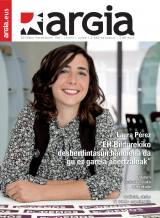


.jpg)

